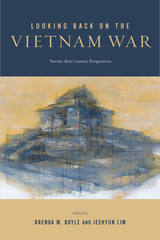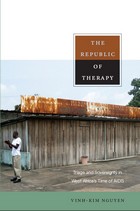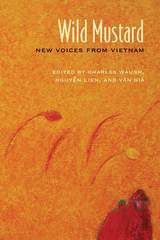3 books by Nguyen, Vinh

Looking Back on the Vietnam War
Twenty-first-Century Perspectives
Boyle, Brenda M
Rutgers University Press, 2016
More than forty years have passed since the official end of the Vietnam War, yet the war’s legacies endure. Its history and iconography still provide fodder for film and fiction, communities of war refugees have spawned a wide Vietnamese diaspora, and the United States military remains embroiled in unwinnable wars with eerie echoes of Vietnam.
Looking Back on the Vietnam War brings together scholars from a broad variety of disciplines, who offer fresh insights on the war’s psychological, economic, artistic, political, and environmental impacts. Each essay examines a different facet of the war, from its representation in Marvel comic books to the experiences of Vietnamese soldiers exposed to Agent Orange. By putting these pieces together, the contributors assemble an expansive yet nuanced composite portrait of the war and its global legacies.
Though they come from diverse scholarly backgrounds, ranging from anthropology to film studies, the contributors are united in their commitment to original research. Whether exploring rare archives or engaging in extensive interviews, they voice perspectives that have been excluded from standard historical accounts. Looking Back on the Vietnam War thus embarks on an interdisciplinary and international investigation to discover what we remember about the war, how we remember it, and why.
[more]

The Republic of Therapy
Triage and Sovereignty in West Africa’s Time of AIDS
Vinh-Kim Nguyen
Duke University Press, 2010
The Republic of Therapy tells the story of the global response to the HIV epidemic from the perspective of community organizers, activists, and people living with HIV in West Africa. Drawing on his experiences as a physician and anthropologist in Burkina Faso and Côte d’Ivoire, Vinh-Kim Nguyen focuses on the period between 1994, when effective antiretroviral treatments for HIV were discovered, and 2000, when the global health community acknowledged a right to treatment, making the drugs more available. During the intervening years, when antiretrovirals were scarce in Africa, triage decisions were made determining who would receive lifesaving treatment. Nguyen explains how those decisions altered social relations in West Africa. In 1994, anxious to “break the silence” and “put a face to the epidemic,” international agencies unwittingly created a market in which stories about being HIV positive could be bartered for access to limited medical resources. Being able to talk about oneself became a matter of life or death. Tracing the cultural and political logic of triage back to colonial classification systems, Nguyen shows how it persists in contemporary attempts to design, fund, and implement mass treatment programs in the developing world. He argues that as an enactment of decisions about who may live, triage constitutes a partial, mobile form of sovereignty: what might be called therapeutic sovereignty.
[more]

Wild Mustard
New Voices from Vietnam
Edited by Charles Waugh, Nguyen Lien, and Van Giá
Northwestern University Press, 2017
Wild Mustard, an anthology of prizewinning short fiction by contemporary Vietnamese writers, throws into relief the transformations of self and place that followed Vietnam’s turn toward a market economy. In just three decades, since the 1986 policy known as doi moi (renovation) ended collectivization and integrated Vietnam into world markets, the country has transformed from one of the poorest and most isolated on earth into a dynamic global economy. The nineteen stories in this volume capture the kaleidoscopic experiences of Vietnam's youth, navigating between home and newly expanded horizons, as they seek new opportunities through migration, education, and integration not only into their nation but into the world.
In the tradition of the "Under 40" collections popularized by magazines such as the New Yorker and Granta, but with greater stakes and greater differences between the previous generation of writers and this new one, Wild Mustard seeks to change how North American readers think of Vietnam. Escaping the common fixation on the Vietnam War and its aftermath, these stories reflect the movement and dynamism of the young Vietnamese who locate themselves amid the transnational encounters and proliferating identities of a global economy.
In the tradition of the "Under 40" collections popularized by magazines such as the New Yorker and Granta, but with greater stakes and greater differences between the previous generation of writers and this new one, Wild Mustard seeks to change how North American readers think of Vietnam. Escaping the common fixation on the Vietnam War and its aftermath, these stories reflect the movement and dynamism of the young Vietnamese who locate themselves amid the transnational encounters and proliferating identities of a global economy.
[more]
READERS
Browse our collection.
PUBLISHERS
See BiblioVault's publisher services.
STUDENT SERVICES
Files for college accessibility offices.
UChicago Accessibility Resources
home | accessibility | search | about | contact us
BiblioVault ® 2001 - 2024
The University of Chicago Press









